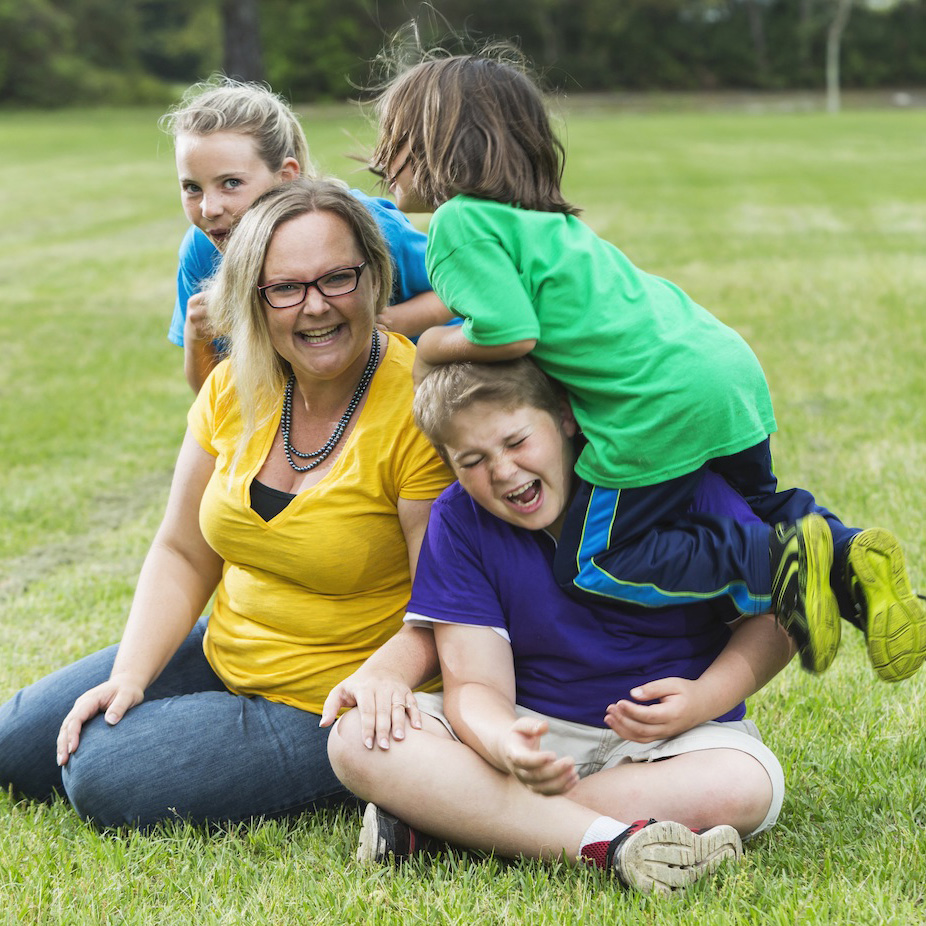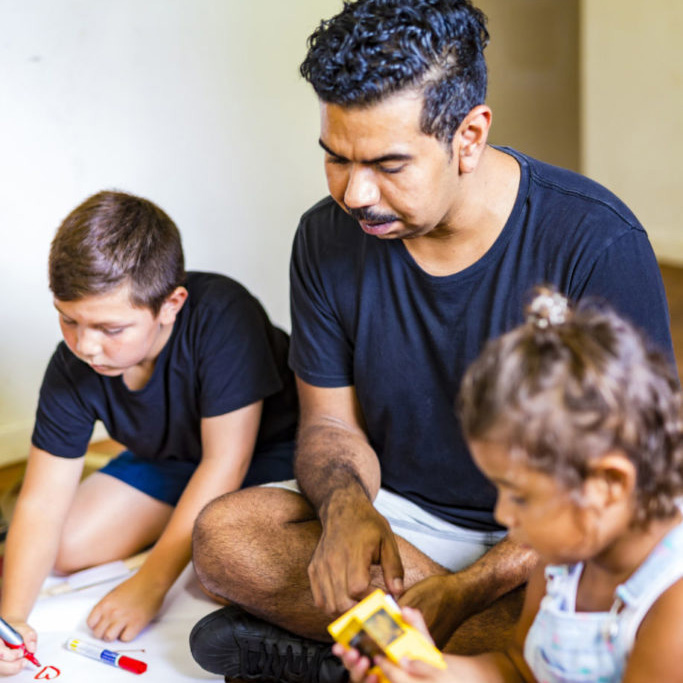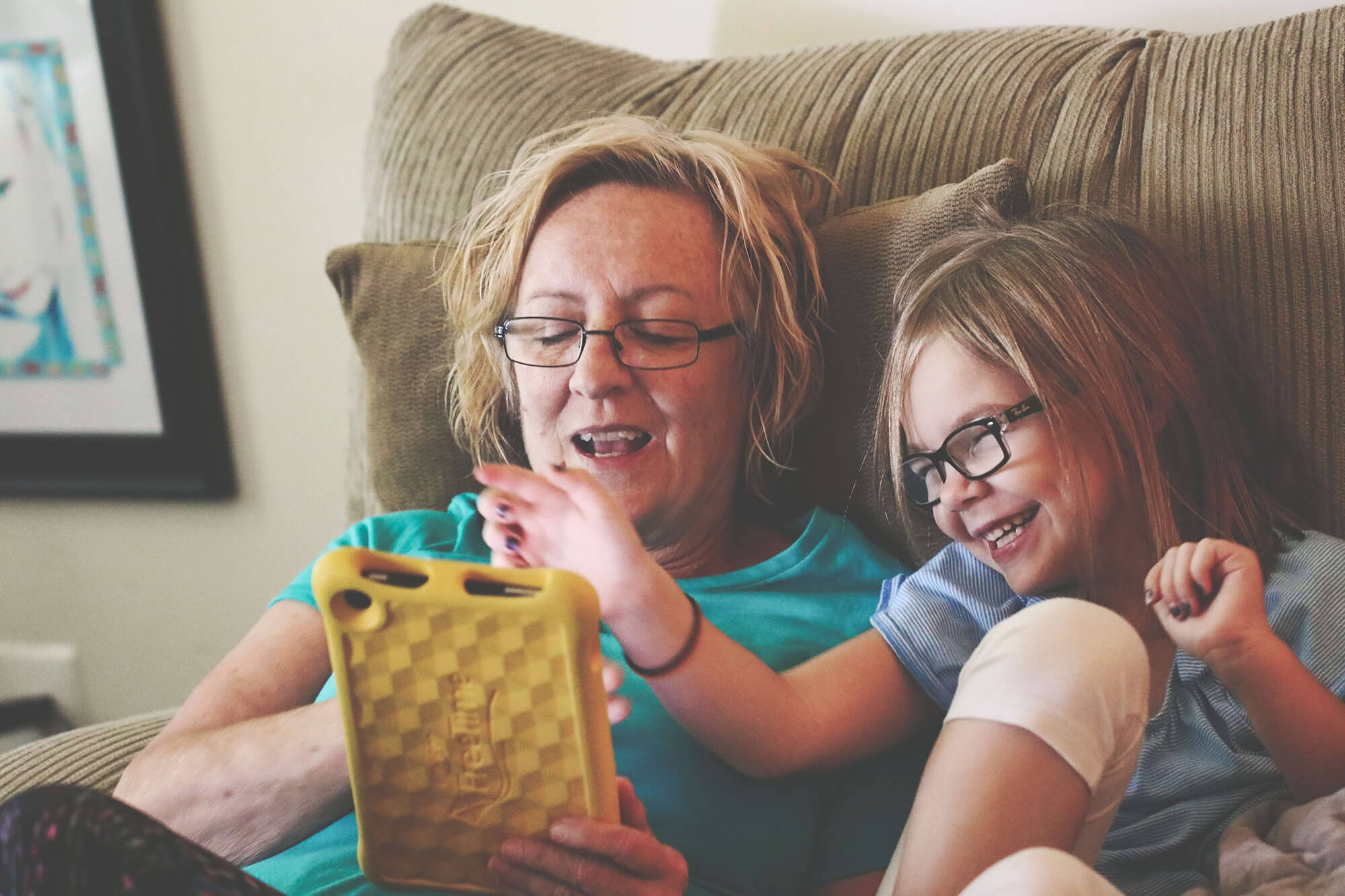What Is Kinship Care?

What is a kinship carer?
The role of foster and kinship care agencies is to source safe care arrangements for children and young people in need of out of home care. Before foster care is even considered, agencies will try and identify a suitable kinship caregiver that the child already knows to care for them until reunification with their parents can be achieved.
Why kin?
There are many reasons why children can’t live with their parents, at any given period. Children are removed from their parents when the Department of Child Safety holds great concern for their safety or wellbeing. However, the goal of foster and kinship care is always to work towards reunification. Where possible, supports are put in place to help equip parents with the knowledge and skills to care for their children again.
In the meantime, agencies will first try to identify members of the child/ren’s extended family (also known as kin) as viable caregivers. They’ll try to look for family members who the young person may already know and feel comfortable with, which can help reduce the emotional impact on the child. Being cared for by kinship caregivers also allows children to remain connected with their parents and broader family, which is important for their wellbeing and also assists with the reunification process.
For any caregiver to be considered, including kin carers, they’ll need to prove that they’re capable of caring for the young person. Additionally, potential carers will need to prove they can provide a safe home for the child/ren (i.e., have no history of abuse or harm).
Who can be a kinship carer?
Kinship caregivers are generally people that the young person knows. This could include their grandparents, aunts and uncles (including great), cousins, older adult siblings or a close family friend.
For First Nation’s children, the Queensland Government mentions:“For Aboriginal and Torres Strait Islander children, a kinship carer may also be another Aboriginal or Torres Strait Islander person who is a member of their community or language group, or compatible with the child’s community or language group.”
Reasons / benefits of a kinship placement
Out of home care studies have demonstrated that children who are placed with kin are more likely to experience greater wellbeing and behavioural outcomes.
Most children in care have generally experienced some form of trauma, difficulty or disturbance in their lives. Thus, kinship carers can play an important role in providing them with a sense of normalcy by helping to make them feel safer and more supported when in their care.
In comparison to foster care, kinship care offers greater benefits to children and young people, such as:
- It enables children to enhance or maintain their connection to familial or cultural heritage
- It can help to strengthen a young person’s sense of identity
- It’s a more stable placement option
- It’s easier for young people to maintain a connection with the rest of their family
- It’s more likely to improve their behavioural and mental health outcomes.
What is foster care?
Foster care is another form of family-based care for children and young people who aren’t able to live with their family. When care agencies aren’t able to identify kin, they’ll try and match them with a suitable foster carer.

What support is given to kinship carers?
Like foster carers, kinship carers can access ongoing support and training at any stage during their care journey. Kinship carers also receive financial support to cover the costs that are associated with supporting young people. This includes items such as clothing, shoes, food, and doctor visits.
Other types of ongoing support that kinship carers can receive include:
- Training and development opportunities
- 24/7 crisis telephone support
- Access to support groups in their areas
- Access to cultural support workers
- Other agency support.
Click here to learn more about the types of carer allowances.
We’re here every step of the way
Our foster and kinship care practitioners are here to support carers and young people every step of the way. Click here to see how we’re supporting carers to ensure that young people have a safe place to call home.
Becoming a kinship carer
The process to become a kinship carer is much the same as the process to become a foster carer. If a child cannot live safely at home, you might be asked to be a kinship carer for them. Or, you might volunteer to care for a child from your family or community who is already in care.
If you’re considering becoming a foster or kinship carer, you need to:
- be at least 18 years old
- have, or get a Blue Card
- complete an expression of interest and show your identity to Child Safety.
You’ll also go through an assessment process to check that you can provide adequate care to the child.
Application for initial approval form:
This gives Child Safety information to complete personal history checks for you and your adult household members. This includes consideration of criminal and child protection history, domestic violence and traffic history.
Blue card application:
This must be completed by you and any other adult members of the household. Child Safety can help with this process.
Household safety study:
This will be completed by the person making the assessment and includes mandatory safety requirements that must be met prior to you being approved as a carer.
Health and wellbeing questionnaire:
This questionnaire will be completed with the help of the person making the assessment.
Required interviews:
These will be conducted by the person making the assessment. You, your children (depending on their age), any adult household members and significant others will be interviewed.

Grandparent kinship carer
The You Be You program recognises and values the important role that grandparent kinship carers play in providing a stable and nurturing long-term environment for their grandchildren. The You Be You program offers a range of kinship care services and supports to grandparents raising grandchildren, such as information sessions, foster care training and support groups, counselling, advocacy, and referrals. The You Be You program also helps grandparent kinship carers to celebrate their achievements and strengths, and to connect with other carers who share similar experiences and challenges. We believe that grandparent kinship carers are valuable in making a positive difference in the lives of their grandchildren.
Kinship carer payments QLD
How much does a kinship carer get paid?
If the child is placed in care via court order, kinship carers are eligible for a fortnightly kinship carer payment, just the same as a full-time foster carer. This carer allowance is designed to cover everyday expenses like food, clothing, household provisions, gifts and pocket money. As of January 2023, kinship carers in Queensland are paid a base allowance between $525.56 and $664.16 per fortnight*. The amount of financial support you receive depends on the age of the child or young person in your care, with kinship care allowances also increasing annually in line with inflation. If the child in your care requires complex support or has a disability or medical condition, you may be eligible for additional compensation for the costs associated with a higher level of child support.
We’ve answered the most common questions asked by Queensland foster and kinship carers
